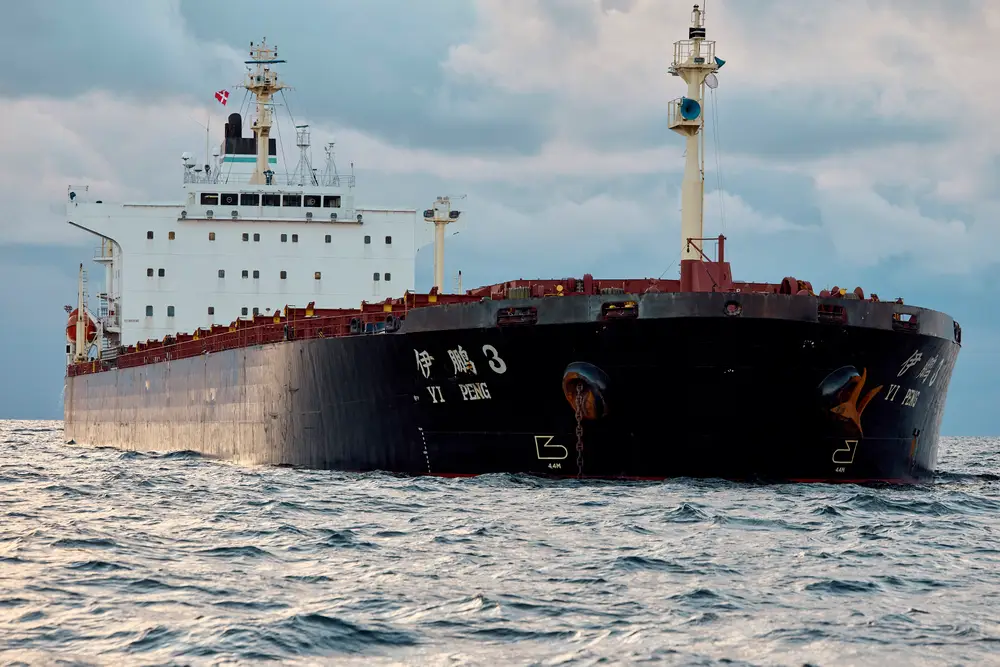See the Chinese cargo ship suspected of sabotaging critical undersea cables between 4 NATO countries

The Suspected Incident
The incident, which took place in the North Sea, was first detected when several key undersea cables, linking the United Kingdom, Denmark, the Netherlands, and Norway, were found to be severely damaged. The cables are part of a global network that facilitates everything from Internet communications to financial transactions and military operations. The damage to these cables disrupted critical services in these countries, leading to communication breakdowns and delays in essential data exchanges. The disruption was not only a significant inconvenience but also raised fears that it could be a precursor to a broader cyber attack or geopolitical maneuver.
According to several Western intelligence sources, the Chinese cargo ship, identified by its international tracking number, was in the vicinity of the damaged cables shortly before the incident occurred. This has led investigators to suspect that the ship may have been involved in deliberate sabotage, though the precise method of attack remains unclear. Some experts believe that the cables were deliberately cut or damaged using advanced technology, possibly including remotely operated vehicles (ROVs) or other submersible tools designed to interfere with underwater infrastructure.
Growing Concerns Over China’s Role
The involvement of a Chinese vessel in this incident has raised serious questions about China’s growing influence and its intentions in international waters. The Chinese government has consistently denied any involvement in such acts of sabotage and has dismissed allegations of this nature as unfounded. However, the ship’s proximity to the cables during the time of the attack, combined with intelligence that links the ship to known Chinese military interests, has fueled suspicions that China may be using its civilian maritime vessels for covert operations.
The incident highlights the broader geopolitical tensions between China and the West, especially in the realms of cybersecurity, technology, and global communication infrastructure. The sabotage of undersea cables is a significant concern for NATO countries, which rely on secure communication lines for military and economic purposes. In recent years, the West has grown increasingly wary of China’s activities in international waters, particularly about its growing presence in the South China Sea, where Beijing has been accused of militarizing artificial islands and asserting territorial claims over disputed areas.
Furthermore, Chinese state-backed cyber operations have been linked to a variety of attacks on Western interests, including hacking into government databases, corporate networks, and critical infrastructure. The sabotage of undersea cables is seen as an extension of this cyber warfare strategy, one that could have far-reaching implications for the security and stability of NATO nations.
The Importance of Undersea Cables
Undersea cables are the backbone of the global internet and telecommunications infrastructure, transmitting more than 95% of international data traffic. These cables connect continents, allowing for everything from secure communication between governments and military forces to the everyday use of the internet by consumers. They also enable the transmission of financial transactions and serve as a critical component of global supply chains.
The disruption of these cables can have far-reaching consequences, not only affecting businesses and consumers but also compromising national security. For NATO countries, the sabotage of such cables could severely impact military coordination and intelligence-sharing, which are vital in maintaining strategic defense operations. Given the rise of cyber threats and the increasing reliance on digital infrastructure for national security, protecting undersea cables has become a top priority for military and intelligence agencies worldwide.
The Investigation and Response
In the aftermath of the cable damage, NATO and the affected countries, including the UK, Norway, Denmark, and the Netherlands, launched a joint investigation to determine the cause of the damage and identify those responsible. Military assets, including ships and submarines, have been deployed to the affected regions to assess the damage and inspect the cables for further signs of sabotage. The investigation is being conducted with the assistance of cybersecurity experts, who are analyzing the possibility that the attack may have been part of a larger cyber operation.
The governments of the affected nations have condemned the attack, calling it an act of “economic sabotage” and a direct challenge to international peace and security. NATO officials have expressed their deep concern about the vulnerability of critical infrastructure and have called for greater cooperation among member nations to safeguard undersea cables from future attacks. Some experts have even suggested that NATO should consider treating attacks on undersea cables as acts of war, given their importance to national security.
China, for its part, has denied any involvement in the attack, with a spokesperson for the Chinese government calling the allegations “unsubstantiated” and “politically motivated.” However, the incident has only added to the already strained relations between China and the West, particularly as the U.S. and European allies continue to scrutinize China’s military and cyber activities. This event has sparked a broader conversation about the need for stronger international regulations and security measures to protect vital undersea infrastructure from future attacks.
Implications for Global Security
The sabotage of undersea cables is not just an isolated incident; it reflects a growing trend of attacks on critical infrastructure by state and non-state actors. While many have focused on cyberattacks against digital networks, the physical security of undersea cables has often been overlooked. As global tensions rise and technological warfare becomes more sophisticated, securing these vital links has become a pressing concern for governments worldwide.
For NATO countries, the attack underscores the need for a unified approach to securing critical infrastructure, particularly undersea cables. Experts warn that these cables, which lie on the ocean floor and are often difficult to monitor, remain vulnerable to both physical and cyber attacks. Protecting these assets requires international cooperation and investment in new technologies to detect and prevent sabotage.
The Chinese cargo ship suspected of being involved in the attack has brought attention to the broader risks posed by China’s growing maritime capabilities. As the investigation continues, the global community will be watching closely to determine the true nature of the attack and whether it represents a new phase in China’s efforts to challenge Western powers. For now, the incident serves as a stark reminder of the fragility of global communication networks and the ever-evolving threats to international security.
In conclusion, the suspected sabotage of undersea cables between four NATO countries is a significant event that raises concerns about the security of critical infrastructure and the role of state-backed actors in cyber and physical warfare. As the investigation unfolds, it is clear that the protection of undersea cables will be a central issue in the ongoing geopolitical struggle for dominance in the digital age.






